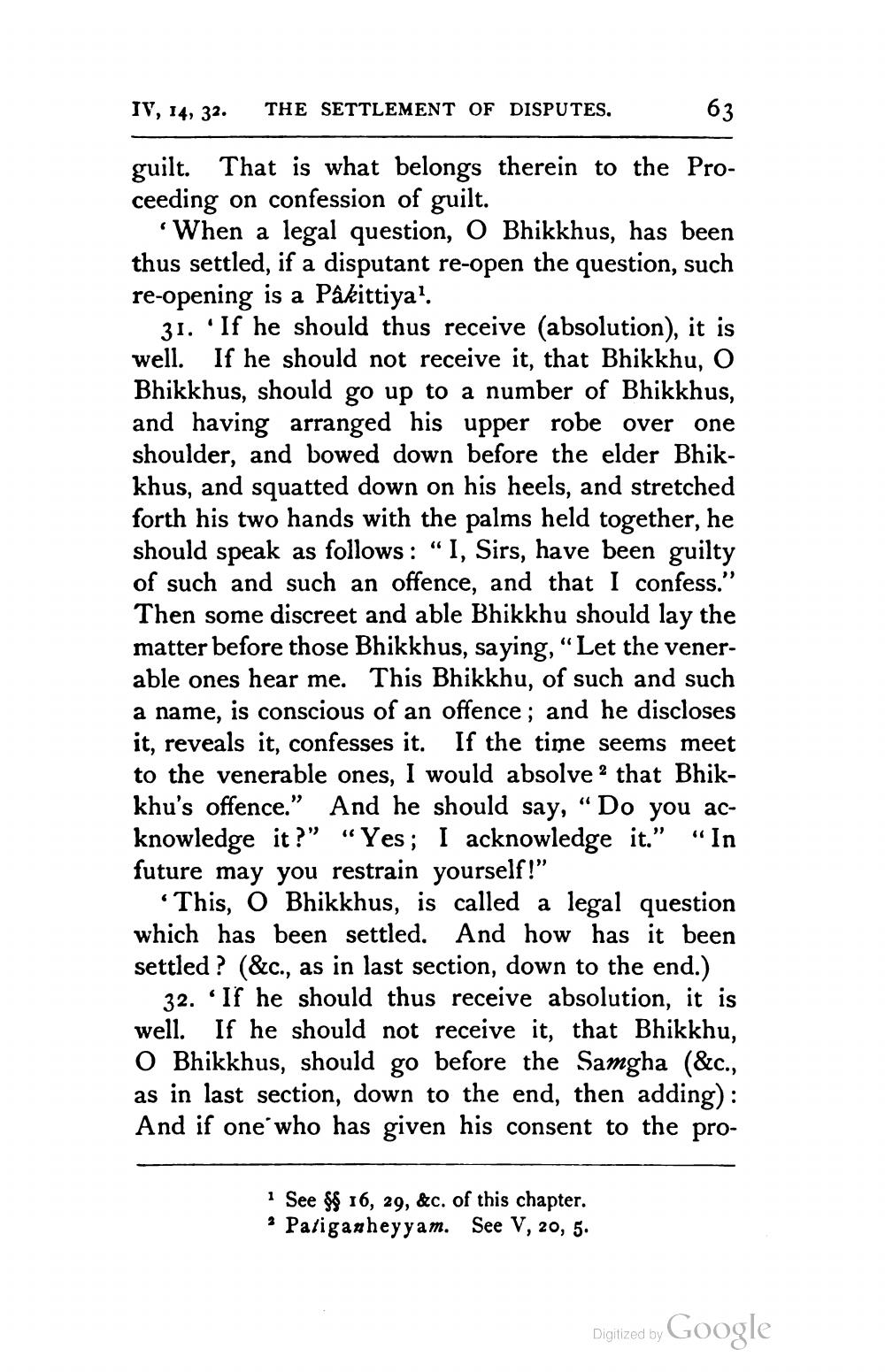________________
IV, 14, 32.
THE SETTLEMENT OF DISPUTES.
63
guilt. That is what belongs therein to the Proceeding on confession of guilt.
When a legal question, O Bhikkhus, has been thus settled, if a disputant re-open the question, such re-opening is a Pakittiya?
31. 'If he should thus receive (absolution), it is well. If he should not receive it, that Bhikkhu, O Bhikkhus, should go up to a number of Bhikkhus, and having arranged his upper robe over one shoulder, and bowed down before the elder Bhikkhus, and squatted down on his heels, and stretched forth his two hands with the palms held together, he should speak as follows: “I, Sirs, have been guilty of such and such an offence, and that I confess." Then some discreet and able Bhikkhu should lay the matter before those Bhikkhus, saying, “Let the venerable ones hear me. This Bhikkhu, of such and such a name, is conscious of an offence; and he discloses it, reveals it, confesses it. If the time seems meet to the venerable ones, I would absolve 2 that Bhikkhu's offence." And he should say, “Do you acknowledge it?" "Yes; I acknowledge it.” “In future may you restrain yourself!"
*This, O Bhikkhus, is called a legal question which has been settled. And how has it been settled ? (&c., as in last section, down to the end.)
32. If he should thus receive absolution, it is well. If he should not receive it, that Bhikkhu, O Bhikkhus, should go before the Samgha (&c., as in last section, down to the end, then adding): And if one who has given his consent to the pro
1 See $$ 16, 29, &c. of this chapter. * Paliganheyyam. See V, 20, 5.
Digitized by
Digized by Google




